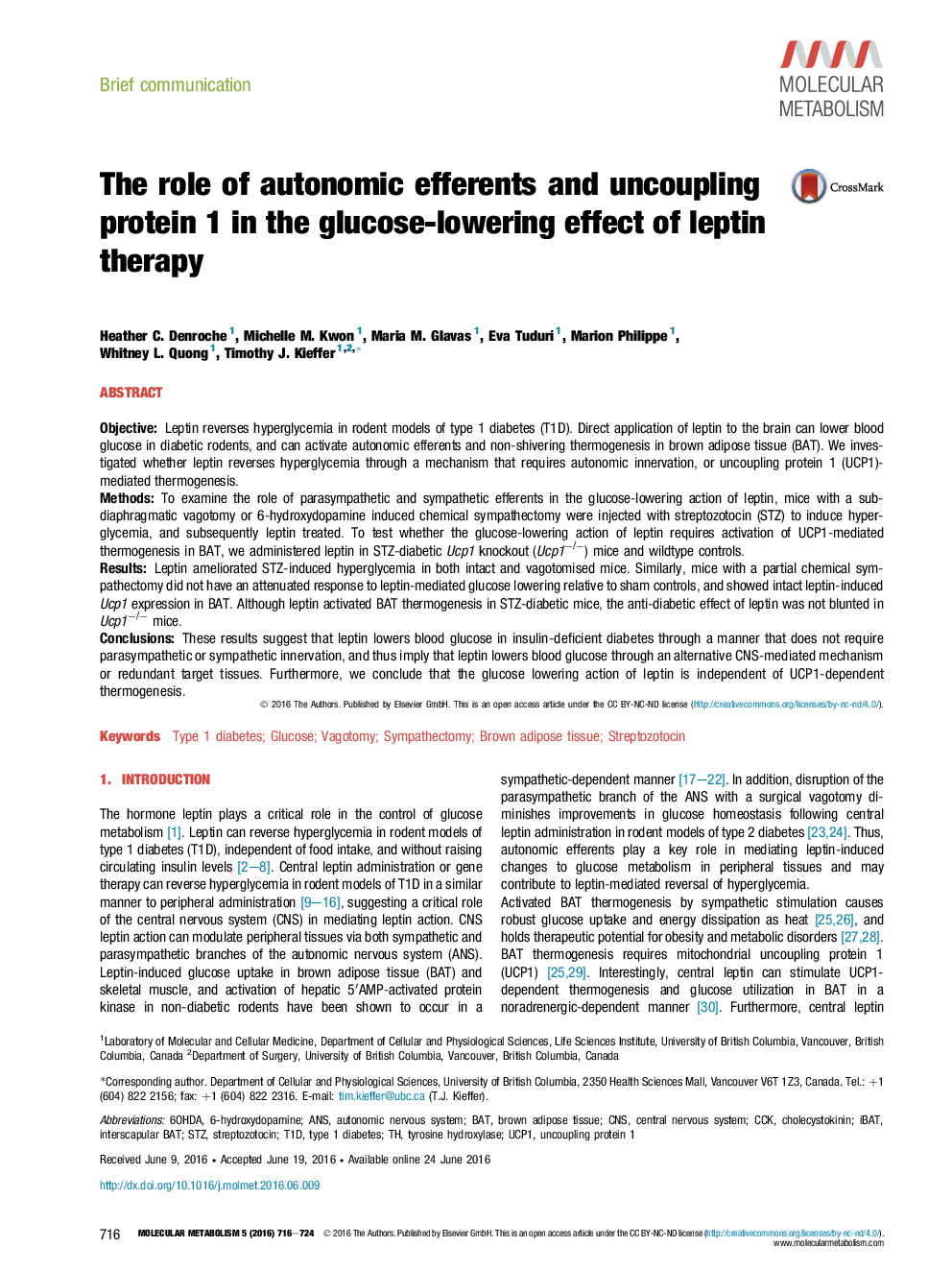| Article ID | Journal | Published Year | Pages | File Type |
|---|---|---|---|---|
| 3001538 | Molecular Metabolism | 2016 | 9 Pages |
•Leptin does not require vagal innervation to reverse hyperglycemia.•Leptin therapy reverses hyperglycemia in mice with a partial chemical sympathectomy.•Leptin reverses hyperglycemia independent of uncoupling protein 1.
ObjectiveLeptin reverses hyperglycemia in rodent models of type 1 diabetes (T1D). Direct application of leptin to the brain can lower blood glucose in diabetic rodents, and can activate autonomic efferents and non-shivering thermogenesis in brown adipose tissue (BAT). We investigated whether leptin reverses hyperglycemia through a mechanism that requires autonomic innervation, or uncoupling protein 1 (UCP1)-mediated thermogenesis.MethodsTo examine the role of parasympathetic and sympathetic efferents in the glucose-lowering action of leptin, mice with a subdiaphragmatic vagotomy or 6-hydroxydopamine induced chemical sympathectomy were injected with streptozotocin (STZ) to induce hyperglycemia, and subsequently leptin treated. To test whether the glucose-lowering action of leptin requires activation of UCP1-mediated thermogenesis in BAT, we administered leptin in STZ-diabetic Ucp1 knockout (Ucp1−/−) mice and wildtype controls.ResultsLeptin ameliorated STZ-induced hyperglycemia in both intact and vagotomised mice. Similarly, mice with a partial chemical sympathectomy did not have an attenuated response to leptin-mediated glucose lowering relative to sham controls, and showed intact leptin-induced Ucp1 expression in BAT. Although leptin activated BAT thermogenesis in STZ-diabetic mice, the anti-diabetic effect of leptin was not blunted in Ucp1−/− mice.ConclusionsThese results suggest that leptin lowers blood glucose in insulin-deficient diabetes through a manner that does not require parasympathetic or sympathetic innervation, and thus imply that leptin lowers blood glucose through an alternative CNS-mediated mechanism or redundant target tissues. Furthermore, we conclude that the glucose lowering action of leptin is independent of UCP1-dependent thermogenesis.
